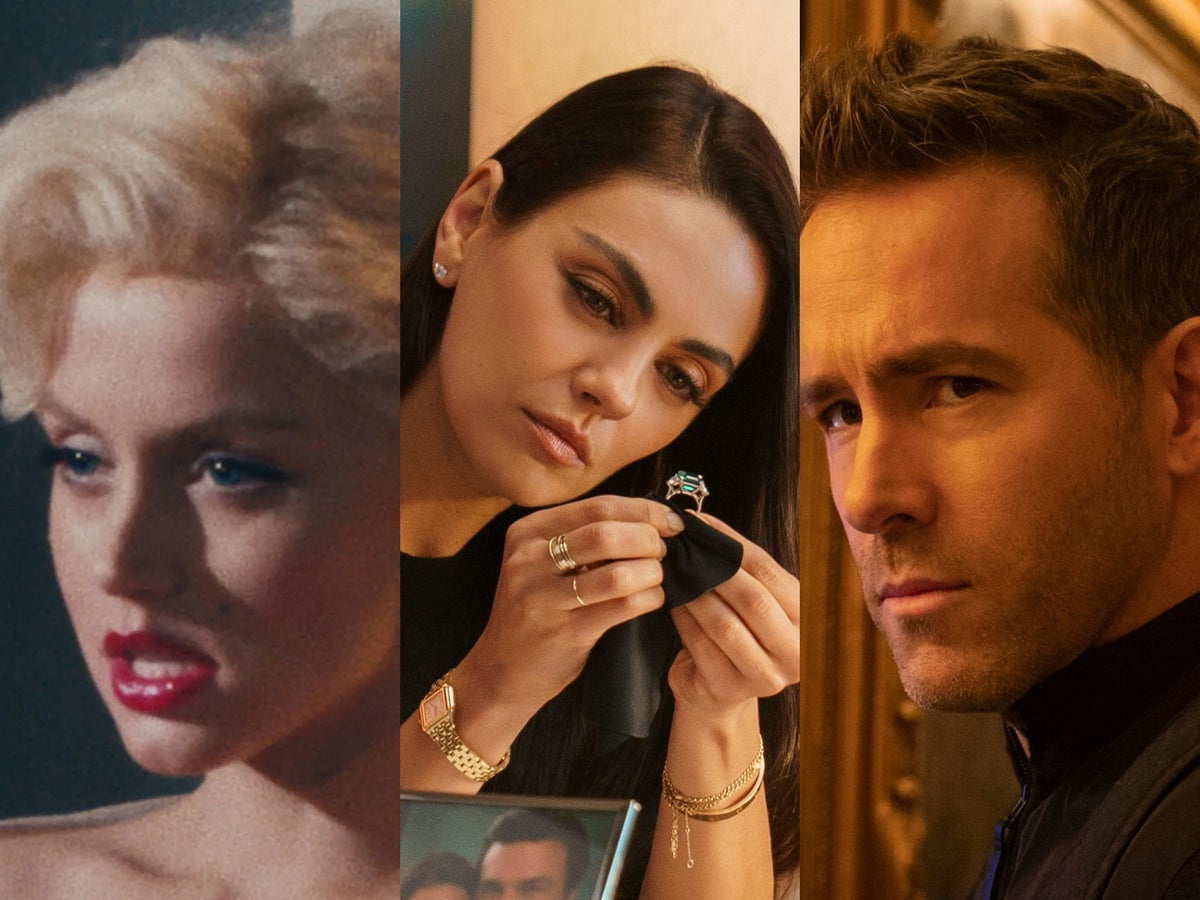
Being featured on the Netflix top 10 used to mean something.
It was a useful list that audiences could look to for recommendations. These were films you could trust to be good.
Needless to say, a lot has changed since then. Now, more often than not, reaching number one on Netflix isn’t necessarily something to be proud of.
As the hate-watching phenomenon continues to grow – in which viewers will binge watch something they admit is terrible – popularity on Netflix becomes less and less synonymous with quality.
We’ve rounded up a list of eight films that did spectacularly well for the streaming giant... but bombed with audiences, according to their Rotten Tomato ratings.
Luckiest Girl Alive (43 per cent)
Currently number one on Netflix, Luckiest Girl Alive is the latest example to prove that a film doesn’t need to be good to make it to the top spot. Mila Kunis stars in an adaptation of the 2015 mystery novel by Jessica Knoll, which follows Ani (Kunis), a writer whose seemingly perfect life is under threat when a true-crime documentary forces her to confront a school shooting she experienced as a teenager.
Despite a promising cast including Connie Britton and American Horror Story star Finn Wittock, the film devolves into cliché, failing to explore the nuance of the novel. Although a special mention should be granted to Chiara Aurelia, whose performance as a younger version of Kunis’s character is among the film’s few highlights. What audiences are left with is a shocking but ultimately confused story with an unearned ending and harrowing scenes that certainly call for a stronger trigger warning than the one it currently has.

Blonde (42 per cent)
Few films have stirred up as much controversy as Andrew Dominik’s Blonde. It can’t come as a surprise then that the film performed well for the streaming giant. Blonde, which stars Ana De Armas as Marilyn Monroe in an adaptation of Joyce Carol Oates’s 2000 novel of the same name, has come under fire for so many things, it’s impossible to keep track. Viewers have highlighted the “anti-abortion” message of the film, with Planned Parenthood even stepping in to call Blonde “anti-abortion propaganda”. Many took issue with a certain scene involving JFK. Others called it misogynistic and exploitative of Monroe’s life and legacy.
As The Independent’s one-star review put it: “But Blonde is not a bad film because it is degrading, exploitative and misogynist, even though it is all of those things. It’s bad because it’s boring, pleased with itself and doesn’t have a clue what it’s trying to say.”

6 Underground (36 per cent)
Even Netflix knows when to throw in the towel. Despite the fact Michael Bay’s 2019 action film 6 Underground, ranked within the top 10 of the biggest Netflix original debuts of all time, the streaming giant admitted it was a miss. “We didn’t get there creatively,” Scott Stuber, head of original films at Netflix, previously said. And with a 36 per cent Rotten Tomatoes rating, it’s safe to say the viewers agree. The film stars Ryan Reynolds as the head of a vigilante group of people (who go by numbers one through seven) taking down criminals on a “bold and bloody mission”. It cost $150m (£136m) to make, a total waste of money in many people’s opinion. 6 Underground is the exact movie you expect it to be, with a good deal of explosives, bullets, and cheesy dialogue. Whether that’s a good thing or not, is up to you.
The Woman in the Window (26 per cent)
By all counts, The Woman in the Window should have been a success. Its selling points are strong: it’s a psychological thriller, it stars Amy Adams, and it’s an adaptation of a bestselling novel by a controversial writer. But alas, the film was a total flop. Adams plays a psychologist Anna who has become an agoraphobe after a tragic incident in her past. Her life is turned upside down, however, when she thinks she witnesses a murder in the house across the street. It’s a promising premise, but that’s it. While a film like this undoubtedly requires twists and turns, the ones here seem at once predictable and ludicrous. The one thing The Woman in the Window has going for it is a short run-time – but still, it feels too long.

Spiderhead (38 per cent)
The simple fact that Chris Hemsworth and Miles Teller starred in Spiderhead meant it was always going to reach number one on Netflix. Its 38 per cent Rotten Tomatoes rating (and 29 per cent audience score), however, is further proof that top actors alone aren’t enough to make a film worth watching. While it is refreshing to see Hemsworth (Marvel darling and all-around nice guy) play a mad scientist villain, the novelty wears off quickly and what you’re left with is a film that is tonally all over the place, and one that has been criminally overstretched from a 2010 short story in The New Yorker called “Escape from Spiderhead”.
Don’t Look Up! (56 per cent)
When it comes to sparking a conversation, Netflix have had few buzzier hits than Don’t Look Up!, Adam McKay’s 2021 eco-satire that starred Leonardo DiCaprio and Jennifer Laurence as two scientists trying to save the world from impending oblivion. The only trouble was the film itself, which shovelled a King’s ransom of A-listers into a broad, sanctimonious and sometimes excruciatingly un-funny comedy.

Red Notice (36 per cent)
There’s much to criticise about Netflix’s dreary double-cross thriller Red Notice, from its weak, quip-heavy script to the phoned-in performances from stars Dwayne Johnson, Ryan Reynolds, and Gal Gadot. Perhaps most egregious of all is the sheer amount of money being thrown at the screen – $200m dollars, supposedly – for a film that never once stops feeling cheap. Reviews were damning, as the 36 per cent RT score suggests, but audiences watched it in their droves. Roll on the sequel, I suppose.

Purple Hearts (35 per cent)
One of the streaming service’s surprise hits of 2022, Purple Hearts, has the ring of a Lifetime Original. Focusing on a conservative US Marine who falls in love with a liberal singer-songwriter, the film is a trashy, contrived melodrama of a romance. Look past the hokey musical numbers and the garish military propaganda, and you’re left with a film that is dramatically inert and politically vacuous. Despite taking a critical bludgeoning, Purple Hearts managed to impress a fair share of Netflix viewers.







